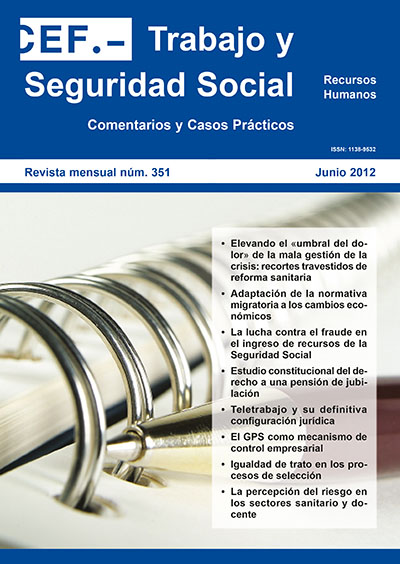Raising the «pain threshold» of the poor management of crisis: cuttings transvestites into a health care reform
DOI:
https://doi.org/10.51302/rtss.2012.3413Keywords:
health care reform, health workers, insurance health and pharmaceutical benefitAbstract
Any health care reform is a complex political-institutional process where different factors pushing for changes to take one direction or another, more favorable to the economic interests involved or more opportune to improving the quality of medical care for the citizens. In general, these reforms seek to balance each and other interests. The National Health System is among the best in quality services and more efficient for high performance with a relatively lower cost than the European average. However, the recent Royal Decree-Law 16/2012 of 20 April, imbued with the same blind austerity policy to try –unsuccessfully– resolving the crisis, takes a single direction of reform: cut health spending, particularly pharmaceuticals, at 3,000 million euros, reducing the public contribution for funding the cost side, and increasing user contribution, using more «co-payment» or «re-payment» of the revenue side. In addition, Royal Decree-Law 16/2012, rather than reform in the strict sense, tries to (only) convert a portion of public debt at Health found in private debt, in some ways as an antithesis of Royal Decree-Law 18/2012, financial sector reorganization, that turn into good public debt part of the financial institutions private debt. A whole world turned upside down.
The authors notice in the study of this mutation of public cost in private cost process through a detailed test of measures incorporated by the Royal Decree-Law 16/2012. The main ways of interpreting are situated by the same analysts on the story of three return to the past: to a «insurance» protection concept to the detriment of the «universal» model, to a greater «re-commodification» of health care, which is an asset sensitive to the market to the detriment of their public funding –not «free»– and a major «re-centralization» of the management system, which calls into question the progress of decentralization in our model. Finally, the authors end up with an overall assessment of Royal Decree-Law 16/2012, which show the trend towards the creation of a «minimum welfare state», with the consequent failure of the constitutional agreement in honor of a «numerical governance» that socialize or generalize the people suffering, as imperatives of an unjustly logic of the total market.


















